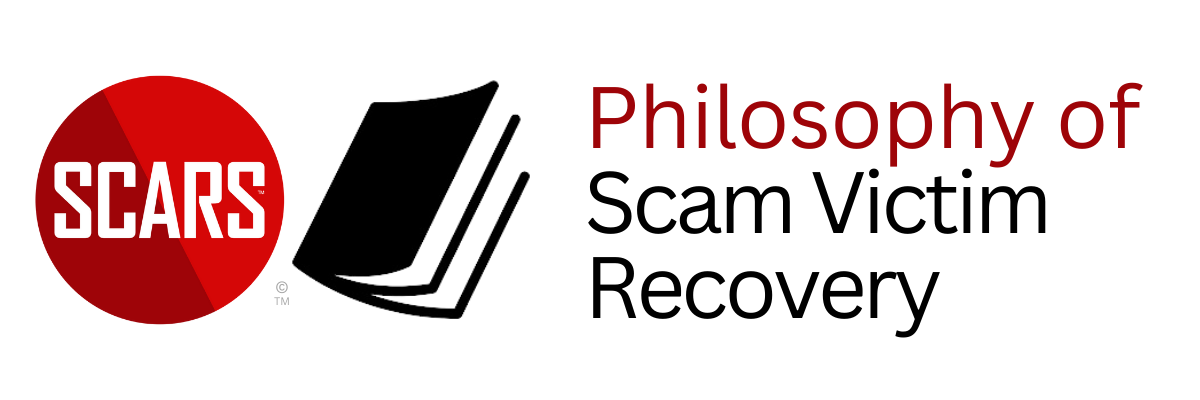
Japanese Ma – An Essential Part of Your Recovery is Allowing Silence
Understanding ‘Ma’: The Japanese Concept of Space, Silence, and Mental Clarity in the Scam Victim’s Recovery
Primary Category: Scam Victim Recovery Philosophy
Author:
• Tim McGuinness, Ph.D., DFin, MCPO, MAnth – Anthropologist, Scientist, Polymath, Director of the Society of Citizens Against Relationship Scams Inc.
About This Article
Ma helps you live in a world that demands constant reaction, especially after a scam has shattered your sense of control. The Japanese concept of ma teaches you to resist that pressure. It is not a distraction, a vacation, or an excuse to avoid recovery. Ma is an intentional pause where you create space for your mind to breathe, your emotions to settle, and your clarity to return. It allows you to step out of the noise without abandoning your healing. By integrating ma into your recovery rhythm, you protect yourself from emotional burnout, reduce reactivity, and give your progress a place to take root. Every pause is not lost time; it is essential time. It is the stillness between actions where true recovery deepens. Ma reminds you that healing is not just about pushing forward; it is also about knowing when to stop, be silent, and allow your mind to catch up with your heart.
Note: This article is intended for informational purposes and does not replace professional medical advice. If you are experiencing distress, please consult a qualified mental health professional.

Understanding ‘Ma’: The Japanese Concept of Space, Silence, and Mental Clarity in the Scam Victim’s Recovery
The Japanese term ‘ma’ represents a unique and profound cultural idea: the space or interval that gives structure, meaning, and rhythm to life. It is not merely a physical gap between objects or a pause between sounds; it is the intentional absence that amplifies presence. The kanji character for ma (間) combines “gate” (門) and “sun” (日), symbolizing light shining through a doorway, emphasizing how emptiness can be a source of beauty, balance, and serenity.
In Japanese aesthetics, ma is a guiding principle. Architects incorporate it in the empty spaces of a room, allowing light and air to flow freely, creating an atmosphere of calm and openness. Musicians use ma in the silent rests between notes, where the absence of sound deepens emotional resonance. In theater, particularly Noh performances, ma is the pause that fills the stage with unspoken meaning, drawing the audience into a heightened awareness of every gesture and breath.
However, ma extends beyond art and design. It manifests in daily life through mindful pauses, such as the stillness in a tea ceremony or the reflective silence in a conversation. These intervals allow for emotional and cognitive digestion. They create space for understanding, for depth, and for connection. By embracing ma, one cultivates an inner stillness that counterbalances life’s noise, fostering a state of calm alertness.
In a world that constantly demands attention and action, ma offers a psychological refuge. It teaches you to value pauses, to find richness in emptiness, and to recognize that silence can speak louder than words. Ma is a conscious choice to resist the urge for relentless activity. It allows your mind to rest, process, and rejuvenate, restoring clarity and balance.
Applying ‘Ma’ to Scam Victim Recovery: Creating Space to Heal
Scam victim recovery is a process marked by emotional intensity and overwhelming urgency. After the shock of betrayal, victims often dive headfirst into recovery efforts, driven by desperation to understand what happened and reclaim control. This period is critical, but it can also become a trap. The relentless focus on “fixing” the problem, researching scams, joining groups, talking to others, absorbing every detail, can lead to emotional exhaustion. Recovery burnout is real. The very energy that drives initial healing can become depleted, leaving victims mentally scattered, fatigued, and vulnerable to emotional collapse.
This is where the concept of ma becomes essential.
Incorporating ma into recovery does not mean avoiding healing or disconnecting from recovery work. Rather, it introduces intentional pauses, structured silences where you step back, breathe, and allow yourself to simply exist without the demand to “do” something about your trauma. These intervals create mental space to process what you have already learned. They give your mind and emotions time to catch up with your efforts.
When you constantly chase recovery milestones, you risk turning the process into a cycle of hypervigilance. Every conversation, every new piece of information becomes another task. Over time, this erodes clarity and resilience. However, by practicing ma, you permit yourself to take restorative breaks without guilt. You allow quiet moments where there is no new information, no urgent problem to solve. This space does not mean losing progress. It means giving your mind the room to absorb and integrate what you have gained.
Victims often seek “cozy” actions, distractions that feel like self-care but actually divert them from necessary emotional work. This can become another form of avoidance. Ma is not about avoidance. It is about purposeful silence, a quiet interval that respects the work you have done while preparing you for the work ahead. It helps you differentiate between healthy rest and unhealthy escape.
By integrating ma into your recovery rhythm, you regain control over your emotional pacing. You stop reacting to every impulse to “fix” immediately and start responding with mindful presence. This not only reduces burnout but also sharpens your focus. When you return from a period of ma, you bring with you a clearer mind and renewed emotional energy.
In practical terms, ma can be practiced through simple rituals: sitting quietly for a few minutes without devices, taking a mindful walk, or allowing a moment of silence after reading a recovery resource. These are not empty pauses. They are spaces that make your recovery efforts more sustainable.
How to Add ‘Ma’ to Your Recovery Process
Recovery from a scam is exhausting. You spend so much time thinking, feeling, and reacting that your mind never gets a moment to breathe. You might believe that relentless focus is the only way to heal, but what you are really doing is burning yourself out. The Japanese concept of ma is not about avoiding recovery or taking a vacation from it. It is about intentionally creating spaces of silence and stillness within your daily life that allow your mind and body to recharge. These pauses help you digest what you have already processed, regain emotional balance, and return to recovery with more clarity and strength. Ma gives you permission to step back without losing progress.
Small pauses each day, after triggers, after crises, or during recovery plateaus can make a profound difference in how you feel and how effectively you heal. Ma is not complicated. You do not need special skills or rituals. You only need to make space.
How to Introduce ‘Ma’ Each Day
Start by finding one small pocket of time each day where you will not engage with recovery. This is not a time to read, research, or talk about scams. This is a time when you let silence or simple, calming activities give your mind a break. Choose a 10- to 15-minute window. It could be in the morning, during a lunch break, or before bed. Turn off your phone, sit in a quiet space, and focus on being present.
You might sit and watch the way sunlight moves across a wall. You might listen to the faint background sounds of your environment. You are not meditating in the formal sense. You are simply letting yourself be without pushing thoughts or emotions. If thoughts about the scam come up, acknowledge them and let them pass. You are not solving anything in this moment.
This daily ma will create a rhythm. You will begin to notice that these pauses give you more patience and emotional steadiness throughout the rest of your day. It is not a distraction. It is maintenance for your mental and emotional endurance. Over time, you will feel less reactive and more grounded, because you have given yourself space to breathe.
How to Introduce ‘Ma’ After a Trigger
Triggers can ambush you without warning. A message, a song, or even a random phrase can send your mind spiraling back into the trauma. When this happens, your instinct might be to fight the emotions or distract yourself. That reaction only fuels the storm. Instead, you need to create a space for ‘ma’, a deliberate pause that allows the trigger’s energy to pass through you without hijacking your control.
The first step is to stop everything for a moment. Sit down, close your eyes, and allow yourself to feel the discomfort without judgment. Do not analyze or respond. You are not fixing anything in this moment. You are allowing space to exist. Focus on your breath. Slow it down. Count the seconds of silence between each breath. That is where ‘ma’ lives, in the stillness you create after the trigger has fired.
This does not need to take long. Even a five-minute pause can reset your emotional balance. The point is not to escape the trigger but to stop it from taking over. By giving yourself permission to step into this quiet space, you reclaim your agency. You allow the emotional wave to pass without drowning in it, and you return to your recovery with clarity and stability.
How to Introduce ‘Ma’ After a Significant Crisis
A significant crisis can shatter your emotional foundation. It could be the discovery of new scam-related losses, a confrontation with someone who dismisses your trauma, or a breakdown moment where the weight of recovery feels unbearable. After such a crisis, you may feel an urge to act immediately, whether it is to fix the problem, explain yourself, or seek comfort through distraction. However, immediate reaction often deepens the emotional chaos. This is when you need ‘ma’ the most.
The first step after a crisis is to grant yourself the right to pause. You do not need to justify it. You do not need to explain it to anyone. Sit down in a quiet space, free from external noise and digital interference. Turn off your phone, shut down the screens, and let the world wait. The crisis has already invaded your mind. Now, you reclaim space.
Focus on your environment. Notice the gaps between sounds, the space between a ticking clock or distant noises. Breathe into those gaps. ‘Ma’ is not about solving the crisis in that moment. It is about allowing stillness to hold the emotional debris so that you can see clearly again. Resist the urge to analyze or plan. This pause is not about thinking; it is about being.
After a significant crisis, you might feel as if your entire progress has been erased. ‘Ma’ teaches you that progress is not destroyed by a single crisis. It is stored within you, beneath the surface noise. By stepping into stillness, you allow your emotions to settle, like mud in water. Clarity does not come from pushing harder. It comes from letting the internal storm quiet down on its own.
Give yourself at least twenty to thirty minutes in this state. If tears come, let them. If silence feels uncomfortable, sit with that discomfort. The point is to create a buffer between the crisis and your next move. Only after that pause will you be able to return to recovery work with a mind that is not hijacked by emotional turbulence. You cannot rebuild while standing in the wreckage. ‘Ma’ gives you the space to step back, breathe, and prepare to rebuild.
How to Introduce ‘Ma’ When Your Recovery Seems to Hit a Plateau
Recovery does not follow a straight path. There will be times when progress feels stagnant, like you are stuck in place no matter how much effort you put in. This plateau can frustrate you, making you question whether you are capable of healing at all. When this happens, forcing yourself to “push through” can backfire, leading to burnout or emotional exhaustion. Instead of pushing harder, this is the perfect time to introduce ‘ma.’
When you sense you are on a plateau, stop what you are doing and create intentional space in your day. This is not procrastination. This is not avoidance. You are deliberately choosing to step away for clarity. Take a quiet walk without your phone. Sit in a room where you can be alone with your thoughts, but without the expectation of solving anything. Let your mind breathe.
The plateau exists because your mind and body need time to assimilate what you have already processed. ‘Ma’ provides that time. It is the pause between steps that allows you to gather strength for the next climb. By stepping back into stillness, you allow your emotional system to recalibrate, giving yourself the chance to see the plateau not as a failure, but as a necessary resting point in the journey.
After Your ‘Ma,’ How to Re-Engage with Your Recovery
Once you have taken your pause, it is time to return to your recovery with renewed focus. The purpose of ‘ma’ is not to abandon your healing but to create the space needed to absorb and refine it. When you step back in, you will notice a shift. The emotions that felt overwhelming before may now feel quieter. The tasks that seemed impossible may now feel approachable.
Start small. Do not expect to resume at full intensity. Choose one simple recovery activity. This might be reading a supportive article, attending a group meeting, or journaling your thoughts. The goal is not to achieve a breakthrough immediately. The goal is to re-establish momentum with calm and intention. Let your steps be steady, not rushed.
Reflect on what came to you during your ‘ma.’ Did you gain new insights? Did the silence help you see old thoughts differently? Use that clarity to guide your next actions. Each time you pause and return, you build resilience. You teach yourself that recovery is not a sprint, but a rhythm. The breaks are as vital as the work. ‘Ma’ ensures that you do not burn out, and when you return, you are not starting over; you are continuing forward, stronger.
Cation ‘Ma’ Is Not a Vacation, Escape, or Denial
It is important to understand that ‘ma’ is not a vacation. It is not a planned getaway or a scheduled relaxation activity. You are not organizing a trip, a spa day, or an entertainment break. Those are intentional distractions. They may offer rest, but they also pull your attention outward, filling the space with new noise. ‘Ma’ is the opposite. It is about stepping into a space where nothing demands your attention.
You are not using ‘ma’ to avoid your recovery work. You are not running away from difficult emotions. Avoidance is an act of denial, pushing problems aside, hoping they will resolve on their own. ‘Ma’ is different. It is an intentional pause, but not a retreat. You are fully present in that pause. You allow yourself to feel whatever rises, without the need to fix it immediately. You are not avoiding the storm. You are standing still and letting the storm pass through you.
‘Ma’ does not ask you to plan. You do not need to curate the perfect environment or follow a schedule. You simply create empty space, space where nothing happens. This emptiness is what makes it powerful. It allows your mind to breathe, your emotions to settle, and your inner voice to be heard.
When you confuse ‘ma’ with recreational breaks or escapism, you lose its true benefit. Those activities can be enjoyable, but they are additions. ‘Ma’ is subtraction. It is about making space, not filling it. That space is where clarity lives. It is where recovery integrates. You are not stepping away from healing. You are making room for it to take root.
Conclusion
The journey of scam victim recovery is not a sprint. It is a long path that requires endurance. Embracing ma, equips you with a mental tool to manage that endurance. It allows you to heal with greater clarity, to navigate emotional intensity with balance, and to preserve the gains you have made without burning out. In the quiet spaces of ma, you will find strength that constant activity cannot provide.
Your recovery deserves breath. It deserves space. Ma is that space.
-/ 30 /-
What do you think about this?
Please share your thoughts in a comment below!
Important Information for New Scam Victims
- Please visit www.ScamVictimsSupport.org – a SCARS Website for New Scam Victims & Sextortion Victims.
- SCARS Institute now offers its free, safe, and private Scam Survivor’s Support Community at www.SCARScommunity.org – this is not on a social media platform, it is our own safe & secure platform created by the SCARS Institute especially for scam victims & survivors.
- SCARS Institute now offers a free recovery learning program at www.SCARSeducation.org.
- Please visit www.ScamPsychology.org – to more fully understand the psychological concepts involved in scams and scam victim recovery.
If you are looking for local trauma counselors, please visit counseling.AgainstScams.org
If you need to speak with someone now, you can dial 988 or find phone numbers for crisis hotlines all around the world here: www.opencounseling.com/suicide-hotlines
Statement About Victim Blaming
Some of our articles discuss various aspects of victims. This is both about better understanding victims (the science of victimology) and their behaviors and psychology. This helps us to educate victims/survivors about why these crimes happened and not to blame themselves, better develop recovery programs, and help victims avoid scams in the future. At times, this may sound like blaming the victim, but it does not blame scam victims; we are simply explaining the hows and whys of the experience victims have.
These articles, about the Psychology of Scams or Victim Psychology – meaning that all humans have psychological or cognitive characteristics in common that can either be exploited or work against us – help us all to understand the unique challenges victims face before, during, and after scams, fraud, or cybercrimes. These sometimes talk about some of the vulnerabilities the scammers exploit. Victims rarely have control of them or are even aware of them, until something like a scam happens, and then they can learn how their mind works and how to overcome these mechanisms.
Articles like these help victims and others understand these processes and how to help prevent them from being exploited again or to help them recover more easily by understanding their post-scam behaviors. Learn more about the Psychology of Scams at www.ScamPsychology.org
SCARS INSTITUTE RESOURCES:
If You Have Been Victimized By A Scam Or Cybercrime
♦ If you are a victim of scams, go to www.ScamVictimsSupport.org for real knowledge and help
♦ SCARS Institute now offers its free, safe, and private Scam Survivor’s Support Community at www.SCARScommunity.org/register – this is not on a social media platform, it is our own safe & secure platform created by the SCARS Institute especially for scam victims & survivors.
♦ Enroll in SCARS Scam Survivor’s School now at www.SCARSeducation.org
♦ To report criminals, visit https://reporting.AgainstScams.org – we will NEVER give your data to money recovery companies like some do!
♦ Follow us and find our podcasts, webinars, and helpful videos on YouTube: https://www.youtube.com/@RomancescamsNowcom
♦ Learn about the Psychology of Scams at www.ScamPsychology.org
♦ Dig deeper into the reality of scams, fraud, and cybercrime at www.ScamsNOW.com and www.RomanceScamsNOW.com
♦ Scam Survivor’s Stories: www.ScamSurvivorStories.org
♦ For Scam Victim Advocates visit www.ScamVictimsAdvocates.org
♦ See more scammer photos on www.ScammerPhotos.com
You can also find the SCARS Institute’s knowledge and information on Facebook, Instagram, X, LinkedIn, and TruthSocial
Psychology Disclaimer:
All articles about psychology and the human brain on this website are for information & education only
The information provided in this and other SCARS articles are intended for educational and self-help purposes only and should not be construed as a substitute for professional therapy or counseling.
Note about Mindfulness: Mindfulness practices have the potential to create psychological distress for some individuals. Please consult a mental health professional or experienced meditation instructor for guidance should you encounter difficulties.
While any self-help techniques outlined herein may be beneficial for scam victims seeking to recover from their experience and move towards recovery, it is important to consult with a qualified mental health professional before initiating any course of action. Each individual’s experience and needs are unique, and what works for one person may not be suitable for another.
Additionally, any approach may not be appropriate for individuals with certain pre-existing mental health conditions or trauma histories. It is advisable to seek guidance from a licensed therapist or counselor who can provide personalized support, guidance, and treatment tailored to your specific needs.
If you are experiencing significant distress or emotional difficulties related to a scam or other traumatic event, please consult your doctor or mental health provider for appropriate care and support.
Also read our SCARS Institute Statement about Professional Care for Scam Victims – click here
If you are in crisis, feeling desperate, or in despair, please call 988 or your local crisis hotline – international numbers here.
More ScamsNOW.com Articles
A Question of Trust
At the SCARS Institute, we invite you to do your own research on the topics we speak about and publish. Our team investigates the subject being discussed, especially when it comes to understanding the scam victims-survivors’ experience. You can do Google searches, but in many cases, you will have to wade through scientific papers and studies. However, remember that biases and perspectives matter and influence the outcome. Regardless, we encourage you to explore these topics as thoroughly as you can for your own awareness.















![NavyLogo@4x-81[1] Japanese Ma - An Essential Part of Your Recovery is Allowing Silence - 2025](https://scamsnow.com/wp-content/uploads/2025/04/NavyLogo@4x-811.png)










![scars-institute[1] Japanese Ma - An Essential Part of Your Recovery is Allowing Silence - 2025](https://scamsnow.com/wp-content/uploads/2025/04/scars-institute1.png)

![niprc1.png1_-150×1501-1[1] Japanese Ma - An Essential Part of Your Recovery is Allowing Silence - 2025](https://scamsnow.com/wp-content/uploads/2025/04/niprc1.png1_-150x1501-11.webp)